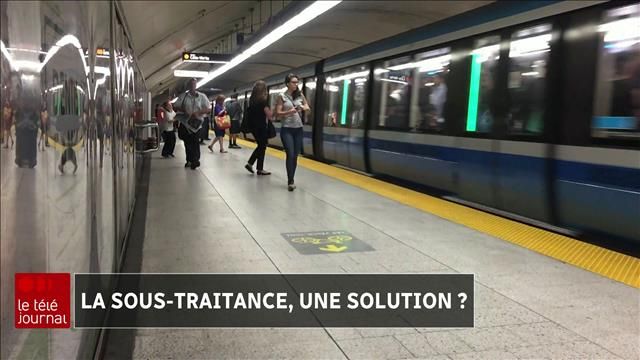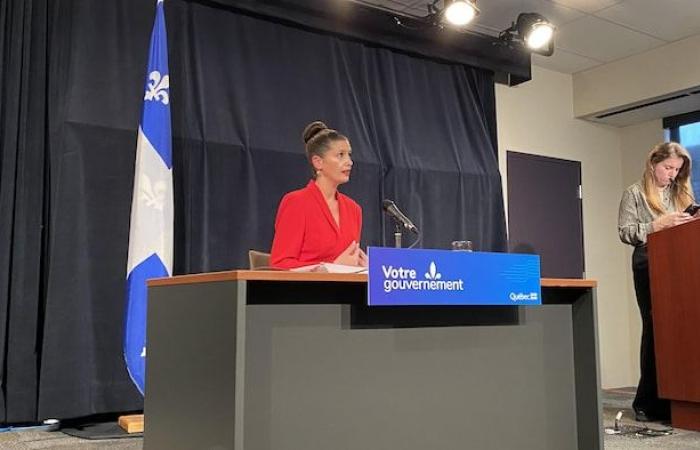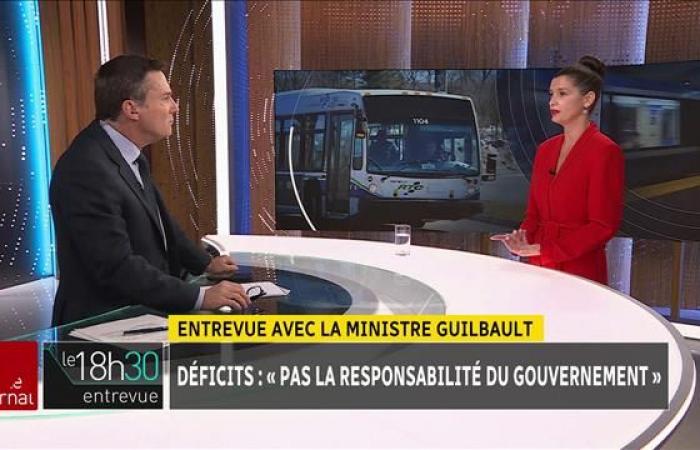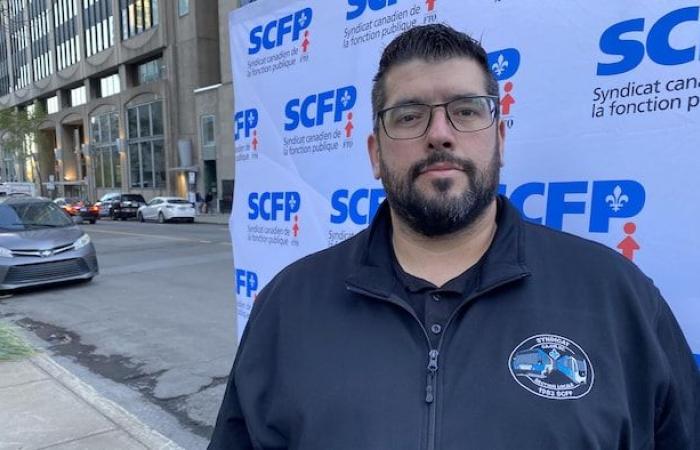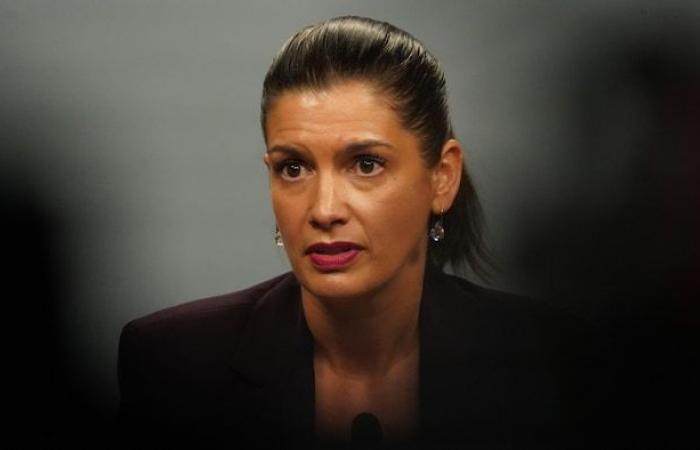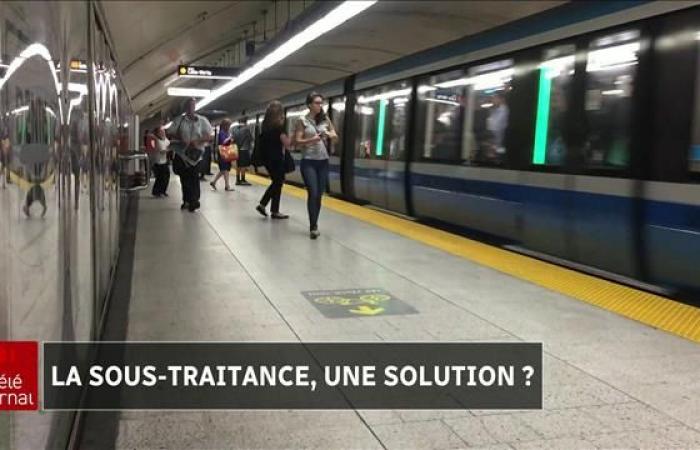The performance audit ordered by the Minister of Transport and Sustainable Mobility, Geneviève Guilbault, to find ways to reduce expenses in Quebec’s 10 transport companies and at the Regional Metropolitan Transport Agency (ARTM) concludes with potential savings of $346 million (in 2024 dollars).
The exhaustive 515-page report from the firm Raymond Chabot Grant Thornton was made public by the government on Thursday. It takes into account the measures already implemented in 2024 as well as the $100 million plan from the Société de transport de Montréal (STM).
Its authors recommend in particular making more room for subcontracting by granting a share of services to private providers
and by outsourcing certain related activities
to the provision of public transportation services to enable organizations to focus on their core activities
.
These measures, it is calculated, could alone provide savings of $75 million. But be careful: operators who wish to implement them could face the rigidity of collective agreements
warn listeners.
During its audit, the firm Raymond Chabot Grant Thornton looked into the finances of all transportation companies in Quebec, namely those of the greater Montreal region, the Capital, Outaouais, Sherbrooke, Trois -Rivers, Lévis and Saguenay.
In particular, she was able to observe that staff remuneration represented 64% of operators’ expenses in 2023, hence the idea of imitating exo, the Metropolitan Transport Network, which already outsources all of its services.
[Les salaires]on the one hand, it is a significant source of expenditure, and, on the other hand, it is a source of limitation of the possibilities of action which could generate savings
summarized Minister Guilbault at a press conference Thursday afternoon.
Open in full screen mode
In presenting the audit, the Minister of Transport, Geneviève Guilbault, also highlighted that public transport companies in the Montreal region are forecasting an accumulated deficit of $2.5 billion by 2028, a deficit she described as “unsustainable”.
Photo : - / Jean-Philippe Hughes
In interview on the show Live with Patrice RoyMinister Guilbault recalled that transport companies are autonomous entities which report to municipalities. Gold, for several years, it has been expected that the government [éponge] very significant, recurring and long-term deficits
explained Ms. Guilbault, who called on the unions to collaborate.
We do not want to make money at all costs but to ensure that each dollar is well invested to provide the best service for Quebecers. It’s not normal to put hundreds of millions [de dollars] and still find themselves in a deficit situation. It takes a thorough restructuring.
She also defended the need for the government to seek more flexibility
because certain actions that could generate savings are limited by collective agreement clauses. According to the minister, it would therefore be a question of injecting a little more flexibility into these employment contracts.
On the backs of workers
The president of the Union of Bus Drivers and Metro Operators of the Société de transport de Montréal (STM), Frédéric Therrien, denounced the fact that, according to him, it is still on the backs of the workers and on the backs of the customers that the cuts are made
.
I find it distressing that the CAQ government says that, for [lui]it is important to have good, good jobs, but every time there is a saving to be made, it is on the backs of the workers.
As for the required flexibility reported in the audit, he replies that his union has always negotiated in good faith but the minister pushes us back into a corner by saying that we are rigid
.
It is certain that when there are collective agreements, we must also stick to them. But discussing it during negotiations will make us happy
he maintained, specifying that the negotiations with the STM have just opened. The collective agreement will expire on January 5.

Open in full screen mode
The president of the STM Bus Drivers Union, Frédéric Therrien
Photo : -
The Canadian Union of Public Employees (CUPE) also sent a press release saying that it is inconceivable that a government which wishes to maintain good jobs with good salaries would go in this direction
.
The Quebec Urban Transport Association (ATUQ), which represents nine public transport companies in Quebec, reacted favorably to the results of the audit and said it was ready to collaborate with the government.
On-demand transport and sharing
In addition to subcontracting, the firm Raymond Chabot Grant Thornton recommends in its report to analyze the possibility of transforming lines or time slots with low traffic
in transport on demand.
The firm also offers pool
certain activities relating to safety and control, training, professional services and parts manufacturing.
These suggestions made Transit, the Alliance for financing public transport, jump, which argued on X that they are relevant
but that the gains they would allow would not materialize in the short term and would not [représenteraient] not an immediate solution to the underfunding of public transportation
.
Furthermore, according to the Alliance, which published a press release later in the day, this exercise on the efficiency of spending should also be applied in the road network.
Why not repeat the exercise with the road network? Demanding efficiency for public transport but taking out the checkbook for the road network is evidence of “double standards”.
In addition to these recommendations, the authors of the report propose, among other things, reducing reserve rate
of the bus fleet to move towards a target of 20% within a two to four year horizon
which, according to their calculations, could save $46.8 million.
The auditors also suggest allowing operators to generate income other than that from public transport
.
This includes the use of airspace for real estate projects, rental of subsidized space and lines dedicated to partners
they specify without commenting on the income that such measures could bring in.
The development of the real estate potential of public transport infrastructure projects is one of the requests made by operators during the study of Bill 61 to establish Mobilité Infra Québec, the detailed study of which continues these days before the Committee on Transport and the Environment.
More than half of the potential savings identified by Raymond Chabot Grant Thornton ($180 million out of $346 million) also come from initiatives targeted by the public transport companies themselves, we learn in the report made public THURSDAY.
Under fire from opposition criticism
The Parti Québécois (PQ) spokesperson for transport and sustainable mobility, Joël Arseneau, strongly criticized the credibility of this report by qualifying thesuperficial and partial exercise
. According to him, it is above all a political maneuver
which devalues the work of transport companies and which serves to justify government underinvestment in public transportation
.
On the side of Québec solidaire, MP Étienne Grandmont also denounced fake performance audits
while recognizing that transport companies have optimization to do
.
The real solution to reducing congestion and [émissions de] greenhouse gases, it is to increase the supply of public transport.
To establish a common basis
The audits by Raymond Chabot Grant Thornton were ordered last year by Minister Guilbault on the sidelines of negotiations intended to replenish the coffers of public transport companies which, especially in Montreal, are accumulating operating deficits. All operators participated.
This exercise mainly aimed to establish a common basis
to allow all parties to speak the same language to the extent that there was no data compatibility between each transit company and with the government
recalled a government source to - on Thursday.

Open in full screen mode
Minister Geneviève Guilbault will use the observations of the firm Raymond Chabot Grant Thornton to negotiate the funding that should be granted to public transit companies in the coming years. (Archive photo)
Photo : - / Sylvain Roy Roussel
For 2025, Quebec has agreed to pay $200 million to municipalities to support operators’ operating deficits. But negotiations continue for the following years.
In this context, the Montreal Metropolitan Community resolved, last spring, to increase the registration tax collected on passenger vehicles registered in the region, which will go from $59 to $150 as of January 1 January. For similar reasons, that of Quebec will also increase from $30 to $90.
